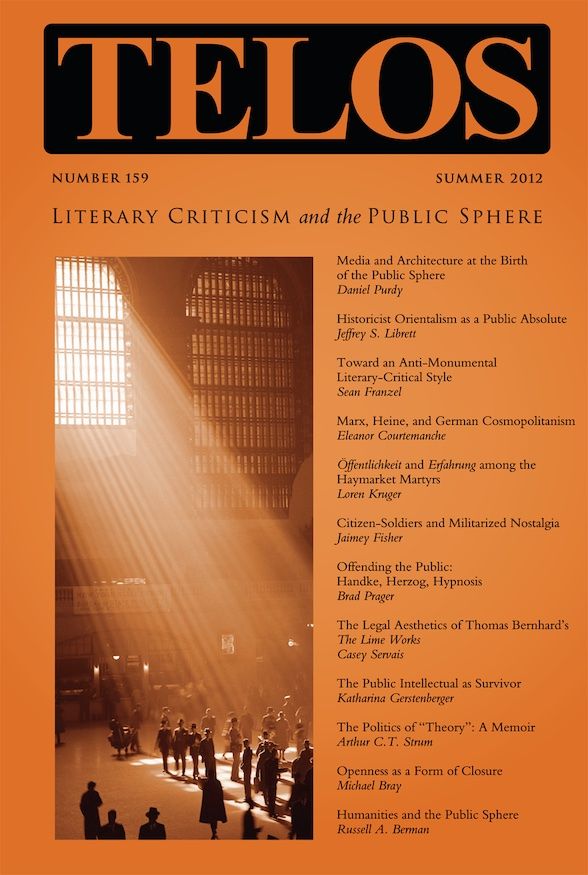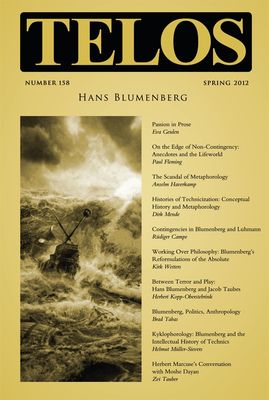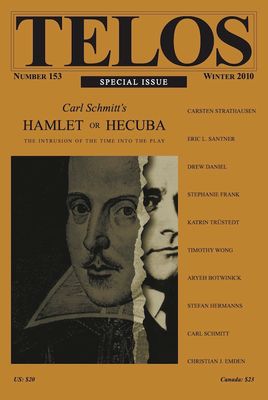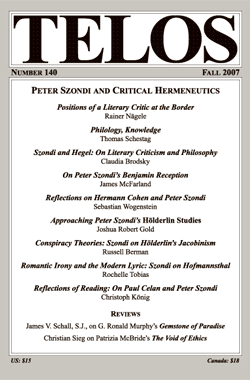Telos 159 (Summer 2012): Literary Criticism and the Public Sphere
Literary Criticism and the Public Sphere
This issue of Telos, which builds upon a recent conference in honor of Peter Hohendahl, brings together a selection of articles that address questions of the theory of the public sphere and its transformations across time and in different media. Literature, Criticism, Public Sphere: the Hohendahl paradigm brings these three terms together in multiple configurations. Works of literature have the distinctive capacity to elicit discussion and the habit of criticism. Precisely why literature occupies a privileged position in generating critical perspectives is another matter, having to do either with its imaginative character, i.e., its aesthetic autonomy, or, alternatively, with its capacity to provide life-practical orientation. Whatever the argument for the specific benefit of literature, it is the discussion about literature that is crucial here. Literary criticism incubates a general capacity for criticism, and this criticism then amplifies the public sphere. Civic virtue begins, counterintuitively, in aesthetic experience.
Introduction
Russell A. Berman
Media and Architecture at the Birth of the Public Sphere
Daniel Purdy
Historicist Orientalism as a Public Absolute: On Herder's Typo-teleology
Jeffrey S. Librett
Toward an Anti-Monumental Literary-Critical Style: Notes on Walter Benjamin and Jean Paul
Sean Franzel
Marx, Heine, and German Cosmopolitanism: The 1844 Deutsch-Französische Jahrbücher
Eleanor Courtemanche
Literary? Public? Proletarian: Öffentlichkeit and Erfahrung among the Haymarket Martyrs
Loren Kruger
Citizen-Soldiers and Militarized Nostalgia: Genres of War and Place in the 1950s Public Sphere
Jaimey Fisher
Offending the Public: Handke, Herzog, Hypnosis
Brad Prager
"A Certain Light, But Only a Juridical Light": The Legal Aesthetics of Thomas Bernhard's The Lime Works
Casey Servais
The Public Intellectual as Survivor: The Cases of Josef Haslinger and Kathrin Röggla
Katharina Gerstenberger
The Politics of "Theory" in a Late Twentieth-Century University: A Memoir
Arthur C. T. Strum
Openness as a Form of Closure: Public Sphere, Social Class, and Alexander Kluge's Counterproducts
Michael Bray
Humanities and the Public Sphere: Scholarship, Language, Technology
Russell A. Berman
Reviews
Hitchens's Crusade
Adrian Pabst






